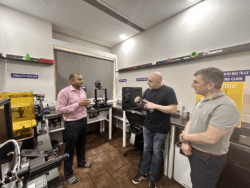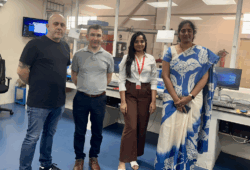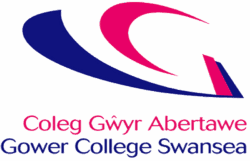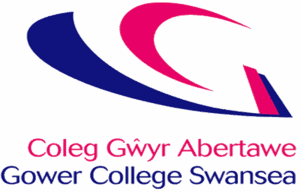
Welsh Colleges – green technology and electric vehicle skills in India
Encouraging interest in the green technology and electric vehicle sector – a curriculum approach.
The aim of this project was to design, develop and deliver a short Level 2 online programme in Green Technology with particular emphasis on Electric Vehicles (EV). The work was a collaboration between Cardiff and Vale College (CAVC), Gower College Swansea (GCS) and T-Hub, Hyderabad (T-Hub). The project team was divided into a project management sub-team and a curriculum development team.
Our intention was to create a product, endorsed by an OFQUAL approved Awarding Body, to both enthuse and encourage school aged pupils and older individuals to reflect and consider ‘green technology’ as a vocational option. This ambition was partly driven by a perception that this critical area of study may be lagging behind demand in terms of curriculum development and availability. The programme was piloted by a small cohort of students (n=14) both in Telengana State, India and in Cardiff. The results suggest there is demand for this type of programme to help attract individuals into green jobs.
We are currently exploring ways in which we can make the programme more widely available within the education ecosystem including moving towards an accredited programme.
Contact UK Skills Partnership


CAVC, CGS, and T-Hub have combined to develop a new curriculum informed by global net zero and labour market imperatives.
CAVC is in the top five colleges in the UK by volume of students, with over 30,000 full and part time learner enrolments annually. Located in the heart of the Welsh capital, it provides a range of excellent education and training opportunities for people >16 years of age with and skill levels from Level 1 to Level 6. CAVC has expanded its education export offer in Green Technology recently by attracting British Council grants to work in Mauritius and Botswana. Much of the work will be undertaken in its Green Technology Centre on the City Centre Campus.
GCS has a well-developed international profile particularly in connection with excellent A Level provision and outcomes for international learners. Whilst the focus to date has revolved around A Levels, GCS is expanding internationally to export its high quality TVET provision. Electric Vehicle (EV) provision in the College is delivered by the Energy Centre and Motor Vehicle. Departments. Both boast excellent links with industry, both locally and nationwide. EV is a growth area for the College.
T-Hub, based in Hyderabad, India, was established in 2015. Since inception, T-Hub has provided over 1800 national and international start-ups with access to better technology, talent, mentors, customers, corporates, investors and government agencies. T-Hub provides expertise in the fields of entrepreneurship, enterprise and innovation, market analysis, and mentorship.
The climate emergency is real with targets to achieve net zero set for 2050 in the UK and 2070 in India. To achieve these targets and help slow down global warming requires awareness, education and action. In the 2022 ‘’Teaching the Future’ report, 51% of secondary teachers felt that climate change and its consequences are not adequately embedded in school curricula in a meaningful and relevant way. Moreover, where climate change/net zero does feature in the classroom, it tends to be concentrated in geography and science lectures rather than being available in standalone packages.
In terms of climate and net zero curricula in the FE space, since 2023 all new further education teachers are required to build sustainability into their teaching as part of the last UK government’s climate change strategy. However, existing college staff will not be required to include sustainability into their teaching and there is a sense that climate change education focuses too much on facts and not the promotion and instigation of action.
The opportunities are immense because the issue is so material to the wellbeing of the planet and future generations. Opportunities to identify solutions require a dedicated ‘green’ workforce and the power of education has a key role to play in this process in developing a pipeline of talent for the green sector. As UNESCO succinctly stated in 2019, ‘education is an essential element of the global response to climate change’.
The emphasis on Electric Vehicles is also key as the UK will be banning the sale of new petrol, diesel and hybrid cars from 2035, as it makes this important green transition.
The skills solutions are inherent in the programme. The content is pitched at Level 2 to reach young people at a time when they are giving serious consideration to study and career preferences.
In order for these skills to be realised and applied in the sector, it is first necessary to attract individuals into the sector. The programme sets out to do just that. This introductory programme provides learners with a general introduction to climate change and net zero, examines the role of electric vehicles as part of the solution to delay/reverse global warming, looks at the technical features of battery and power train operation, examines the health and safety considerations associated with EV’s, and touches on the importance of entrepreneurial and enterprising thinking in the push for net zero.
In addition, the programme is imbued with an international flavour by drawing on examples from the UK and India. As part of the practical module, a professional video was made to demonstrate the location and function of EV components, in order to facilitate online delivery.
The outcomes of the project were both to create a new introductory programme in green technology and electric vehicles but also further raise awareness among young people of the climate emergency and how it can be mitigated.
The results from the pilot study were encouraging. In response to a question as to whether the students in the pilot cohort would recommend the programme to peers, 10 of the 14 said they would be very likely to do so and 4 declared they would be likely. More importantly 12 of the 14 respondents reported that the programme has made them think about future study or a career in the Green Technology/EV field. These key findings, in particular, suggest a positive impact on the individuals following the course and the potential to scale this up to reach other markets.
Further, this novel programme will contribute the way we think about curriculum development in relation to green technology. The problems we face are real, current and pressing. There is a time lag between the rapid emergence of new technologies and related skills requirements and the pace at which the education and training sector can develop, validate and roll out new courses. This is causing, and contributing to, significant skills gaps around the world in multiple occupational sectors and the question is therefore how can we accelerate the rate at which we can deliver educational training product. The use of endorsed courses like this one and micro-credentials must be part of the solution.
In addition, reciprocal visits as part of the project certainly promoted a greater inter-cultural understanding of approaches to addressing net zero particularly in the context of EVs. The feedback from travelling staff certainly had an effect on the way they think about the issues and how countries can combine effectively to co-create solutions.
Wider and deeper impacts will depend on the success of our current efforts to roll out this programme to a wider audience.















